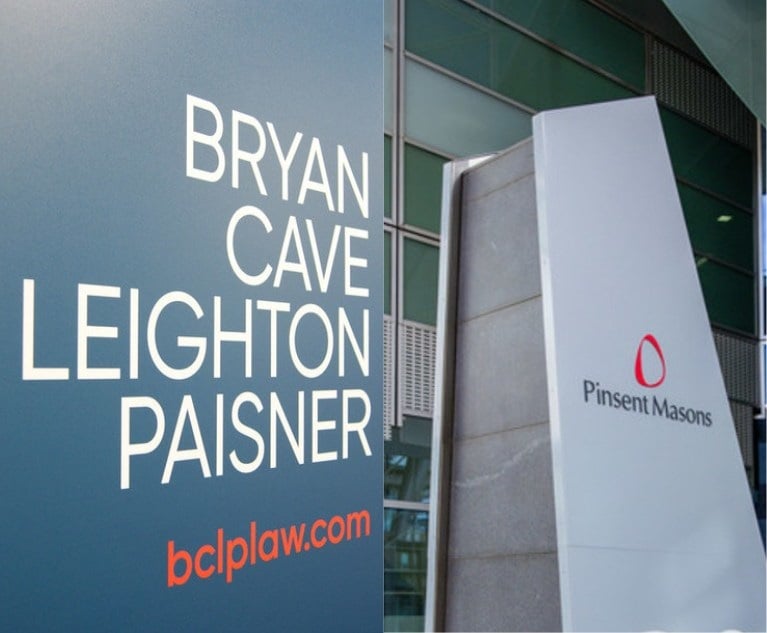Rollout of new qualifying exam delayed by one year as SRA confirms cost of up to £4,500
New Solicitors Qualifying Examination will now be rolled out in autumn 2021
November 08, 2018 at 07:55 AM
3 minute read
The Solicitors Regulation Authority (SRA) has pushed back the date for the rollout of the new Solicitors Qualifying Examination (SQE) to autumn 2021, while also announcing that the cost of the new exam could be as much as £4,500.
The SQE – the introduction of which means aspiring lawyers will no longer need to complete the Legal Practice Course (LPC) – will cost between £3,000 and £4,500, according to a "provisional fee range" published by the SRA today (8 November).
A launch date of autumn 2020 had been proposed but, in response to feedback, the SRA is now pushing back the start date by a year to give legal education providers and law firms time to develop training and transition to the new system.
Earlier this year, the SRA appointed professional education and training organisation Kaplan to develop and run the the new exam.
Kaplan, which will run the SQE but not provide training for it, was selected following what the SRA called "a rigorous year-long process". Under an eight-year deal, it will deliver the common assessment that all entrants to the profession must take, regardless of their chosen route.
The SQE was unveiled in April last year in response to concerns that LPC pass rates were too provider-dependent, inconsistent, and that the course was no longer suitable given changing market pressures.
The SRA expects the new model will "introduce transparency and competitive pressures to drive up standards and reduce cost", as well as removing "the LPC gamble", which can cost up to up to £16,700.
Split into two stages, under the SQE students will first focus on functioning legal knowledge – including professional conduct, commercial and corporate law, and dispute resolution. They will then be tested on practical legal skills such as drafting, interviewing and oral communication.
Trainee solicitors will also no longer be required to complete training contracts – instead, they will need to complete at least two years of "qualifying legal work experience". This experience can be covered by as many as four different employers, including a university – for example, working for a university law clinic. Paralegal work can also count towards the work experience requirement.
The SRA is expecting that candidates will take stage one of the SQE before their work-based experience, and SQE stage two at the end of their work experience.
SRA chief executive Paul Philip said: "We want everyone to be ready to make the most of the SQE. We have listened to law firms and universities, who have told us that 2021 gives them the right amount of time to prepare.
"Our priority is creating a rigorous, value-for-money assessment that drives consistent high standards. The SQE also offers a fresh opportunity to increase access to the profession. A competitive training market, offering real choices, will help the profession attract the best talent."
Photo credit: Thomas Galvez
This content has been archived. It is available through our partners, LexisNexis® and Bloomberg Law.
To view this content, please continue to their sites.
Not a Lexis Subscriber?
Subscribe Now
Not a Bloomberg Law Subscriber?
Subscribe Now
NOT FOR REPRINT
© 2025 ALM Global, LLC, All Rights Reserved. Request academic re-use from www.copyright.com. All other uses, submit a request to [email protected]. For more information visit Asset & Logo Licensing.
You Might Like
View All
A&O Shearman, Cleary Gottlieb Act on $700M Dunlop Tire Brand Sale to Japan's Sumitomo


Stewarts and DAC Beachcroft Lead on £2B Leicester City Helicopter Crash Litigation

Israel's Rushed Corporate Tax May Spark Law Firm Mergers, Boost Large Firms Including Gornitzky
4 minute readTrending Stories
- 1The FTC’s Noncompete Rule Is Likely Dead
- 2COVID-19 Vaccine Suit Against United Airlines Hangs on Right-to-Sue Letter Date
- 3People in the News—Jan. 10, 2025—Lamb McErlane, Saxton & Stump
- 4How I Made Partner: 'Be Open With Partners About Your Strengths,' Says Ha Jin Lee of Sullivan & Cromwell
- 5Essential Labor Shifts: Navigating Noncompetes, Workplace Politics and the AI Revolution
Who Got The Work
Michael G. Bongiorno, Andrew Scott Dulberg and Elizabeth E. Driscoll from Wilmer Cutler Pickering Hale and Dorr have stepped in to represent Symbotic Inc., an A.I.-enabled technology platform that focuses on increasing supply chain efficiency, and other defendants in a pending shareholder derivative lawsuit. The case, filed Oct. 2 in Massachusetts District Court by the Brown Law Firm on behalf of Stephen Austen, accuses certain officers and directors of misleading investors in regard to Symbotic's potential for margin growth by failing to disclose that the company was not equipped to timely deploy its systems or manage expenses through project delays. The case, assigned to U.S. District Judge Nathaniel M. Gorton, is 1:24-cv-12522, Austen v. Cohen et al.
Who Got The Work
Edmund Polubinski and Marie Killmond of Davis Polk & Wardwell have entered appearances for data platform software development company MongoDB and other defendants in a pending shareholder derivative lawsuit. The action, filed Oct. 7 in New York Southern District Court by the Brown Law Firm, accuses the company's directors and/or officers of falsely expressing confidence in the company’s restructuring of its sales incentive plan and downplaying the severity of decreases in its upfront commitments. The case is 1:24-cv-07594, Roy v. Ittycheria et al.
Who Got The Work
Amy O. Bruchs and Kurt F. Ellison of Michael Best & Friedrich have entered appearances for Epic Systems Corp. in a pending employment discrimination lawsuit. The suit was filed Sept. 7 in Wisconsin Western District Court by Levine Eisberner LLC and Siri & Glimstad on behalf of a project manager who claims that he was wrongfully terminated after applying for a religious exemption to the defendant's COVID-19 vaccine mandate. The case, assigned to U.S. Magistrate Judge Anita Marie Boor, is 3:24-cv-00630, Secker, Nathan v. Epic Systems Corporation.
Who Got The Work
David X. Sullivan, Thomas J. Finn and Gregory A. Hall from McCarter & English have entered appearances for Sunrun Installation Services in a pending civil rights lawsuit. The complaint was filed Sept. 4 in Connecticut District Court by attorney Robert M. Berke on behalf of former employee George Edward Steins, who was arrested and charged with employing an unregistered home improvement salesperson. The complaint alleges that had Sunrun informed the Connecticut Department of Consumer Protection that the plaintiff's employment had ended in 2017 and that he no longer held Sunrun's home improvement contractor license, he would not have been hit with charges, which were dismissed in May 2024. The case, assigned to U.S. District Judge Jeffrey A. Meyer, is 3:24-cv-01423, Steins v. Sunrun, Inc. et al.
Who Got The Work
Greenberg Traurig shareholder Joshua L. Raskin has entered an appearance for boohoo.com UK Ltd. in a pending patent infringement lawsuit. The suit, filed Sept. 3 in Texas Eastern District Court by Rozier Hardt McDonough on behalf of Alto Dynamics, asserts five patents related to an online shopping platform. The case, assigned to U.S. District Judge Rodney Gilstrap, is 2:24-cv-00719, Alto Dynamics, LLC v. boohoo.com UK Limited.
Featured Firms
Law Offices of Gary Martin Hays & Associates, P.C.
(470) 294-1674
Law Offices of Mark E. Salomone
(857) 444-6468
Smith & Hassler
(713) 739-1250









